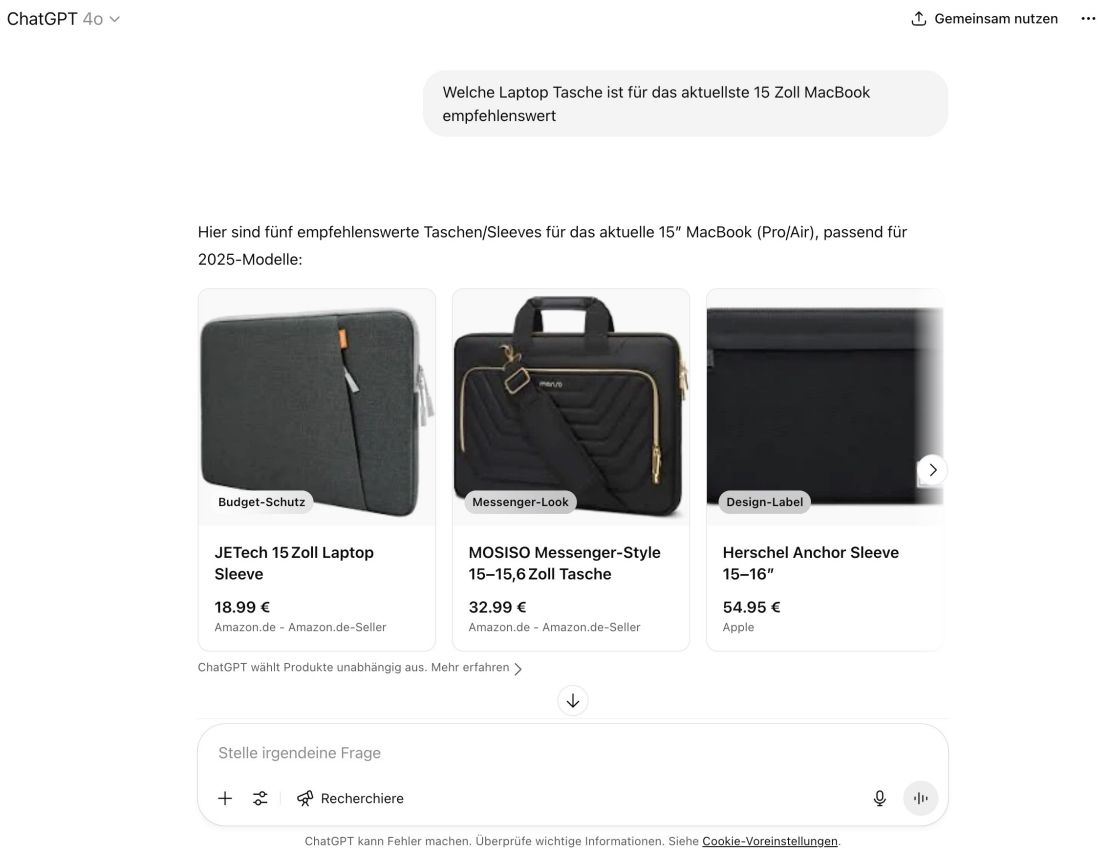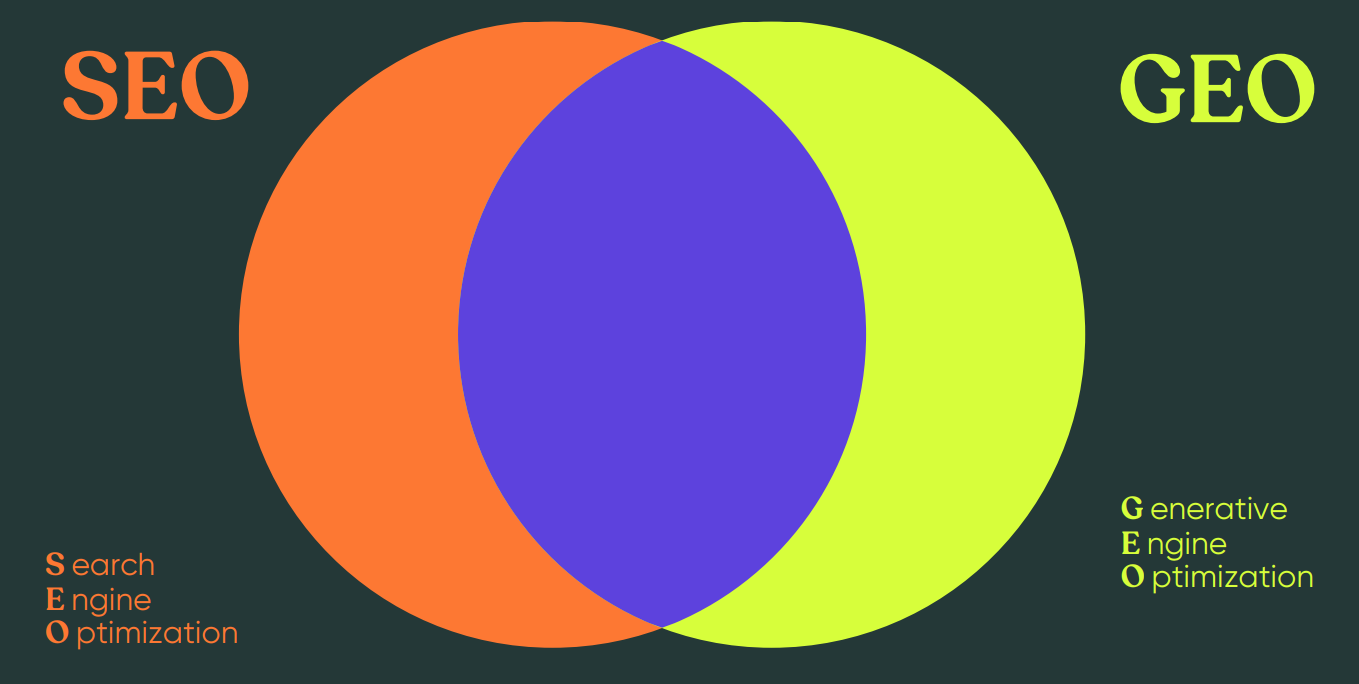By Janus Boye
Sven Ditz is CEO at sitegeist media solutions in Hamburg, Germany and in a recent members call he shared his insights on digital marketing in the post search era
Did you know that 60% of Google searches now end without a click?
With AI overviews and searches causing measurable drops in click-through rates, and companies outbidding each other with ad spend to slow the drop in traffic, the focus is shifting to one key question: How do you get found on ChatGPT, Gemini and other key conversational AI chatbots.
In a recent members' call, Sven Ditz from sitegeist, a digital agency in Hamburg, took a deep dive into GEO (generative engine optimization) and how it changes everything when it comes to digital marketing in the post-search era.
Before diving into the details, Sven opened the talk by zooming out and looking at the bigger picture of what is happening right now.
Putting the big change in perspective
Internet pioneer Bebo White gave an inspiring keynote at the Boye Aarhus 24 conference in November last year, where he listed some of the fears and concerns back when the World Wide Web was introduced in the early 90’s:
Concerns about misleading and incorrect information.
Fears of theft of intellectual property and copyrighted materials.
Fears of a “digital divide”.
The theme of Bebo's keynote was actually not a walk down memory lane. It was about Gen AI where the same concerns exist and hold true. Yet, as both Bebo mentioned in November and as Sven reminded us in the call, we need to stay curious and approach the topic with all the imperfections that come with it.
As Sven said, the real change happening right now is that Internet giant Google is losing its gatekeeper role. In its role as part ad platform, part search engine, Google search has been on a seemingly never ending rise for over two decades, but that is coming to an abrupt halt these days. Not only is the usage of google.com trending down for consecutive quarters, but search clicks are also dwindling. Sven cited research stating that up to 67% of all Google searches now don’t lead to a click. In other words, you need a substantial search volume to get traffic on your website from good ‘ol Google.
AI overviews in the Google search interface is one reason for this change, but an even bigger factor is that people have started using ChatGPT to find what they are looking for in a big way.
Search is being replaced by conversational AI chatbots
It has almost been three years since ChatGPT was released to the public in late November 2022, and since then ChatGPT has become a verb, similar to ‘google this’. Competitors exist like Gemini, Copilot and Claude, but ChatGPT is clearly leading the pack.
While ChatGPT and its peers were never really intended as a search engine but more positioned as a conversational bot powered by a large language model, people have indeed taken the usage far beyond the original intention. This year ChatGPT also introduced product browsing, and Sven showed us this feature using the example of looking for a new laptop bag in German as shown in the screenshot below:
Irrespective of your language skills, you see laptop bags offered on both Amazon and Apple based on Sven’s prompt asking for a suitable laptop bag for a 15 inch MacBook.
The impact on digital marketing is profound. In many cases, your ideal users might never visit your website or even read your original content.
One more thing: Sven cited Matthew Prince from Cloudflare, who recently said that
“People trust AI more and more”
The whole topic of trust is for another time, but let me just say that it is quite intriguing how much trust people are putting into the bots. And how much they are willing to share to get advice, but without any further introduction the big question is:
How do you make sure that you exist and are found on ChatGPT?
Getting found on ChatGPT takes work
As Sven said, Search Engine Optimization (SEO) is not dead and many of the established best practices still ring true. Content quality, link building, performance and good user experience still makes a difference.
The change towards Generative Engine Optimization (GEO) is in particular about the use of structured data and the rising importance of high authority sources.
When it comes to structured data, Sven shared these five bullets:
Use clear, concise text (think of answers to prompts) with ca. 40 words per answer block.
Structure content, e.g. H2/H3 headings & answer sub-questions.
Prefer lists and tables where possible.
Cover topics holistically and answer follow-up questions proactively.
Keep content updated to stay relevant e.g., via AI-supported workflows.
For high authority sources, Sven mentioned both Wikipedia and Wikidata. In the age of GEO, the online encyclopedia Wikipedia is even more important as ChatGPT places high value in its content.
Sven also recommended that you might also want to put resources into the lesser known Wikidata, which is also scraped by the bots. Wikidata is a free, collaborative, and open-source knowledge base that acts as a central repository for structured data, primarily used to support other Wikimedia projects like Wikipedia.
Besides the Wiki projects, Sven also mentioned press portals and the value of getting mentioned by mainstream media, like BBC or similar in your country and industry. These are high authority, and ChatGPT relies heavily on them to create its answers, or search results if you like.
We are in the early phases of Generative Engine Optimization
As a part of our follow up after the call, Sven picked up on a few questions that were posted in the chat during the call. First and foremost, Sven shared his recommendation to keep in mind that we are currently in a very early phase of the GEO era.
To quote Sven:
There are many parallels to the early days of SEO, about 25 years ago. For a short period, there are always some “hot” tips that genuinely work well — until everyone knows them, and you constantly need to stay ahead of the wave to keep uncovering the most effective tactics. This is where you can gain an early advantage — through commitment, creativity, and innovative people, whether within your own company or by working with the right partners. But that position must be defended continuously over time.
There are no golden rules here. No clear-cut guidelines.
We are in an entirely new and innovative space.
One of our Norwegian members asked about how this all impacts the design and UX work. Might it be less important now that people visit Web sites far less?
According to Sven, the focus is shifting as we move towards GEO. Traditional navigation UX (menus, click paths, UI hierarchies) becomes less relevant, because LLMs extract content — they don’t navigate the site like a human. Keep in mind also that visual staging for first-time visitors is no longer the main entry point for human users.
What becomes more important is your semantic structure and clarity: Content must be written and structured in a way that both humans and LLMs can understand and accurately reproduce. This also makes contextual relevance and authority even more important: Content needs to be trustworthy, complete, and logically consistent.
Actually, Sven predicts that UX will become more critical very soon because your digital visitors will come with a stronger sense of purpose. And that purpose expects a site that immediately convinces, guides, and converts. The UX of the future is no longer a formality — it's your final, convincing moment.
Finally, there’s the topic of hallucinations. Hamburg based design leader Thorsten Jonas cited this NY Times article: A.I. Is Getting More Powerful, but Its Hallucinations Are Getting Worse, which brings back the original fears and concerns from the opening with Bebo White. Hallucinations have both been called a romantic way to say lying, but perhaps it is more appropriate to talk about it as errors.
Whatever you call it, hallucinations are still an issue in today’s reasoning-heavy base models. Sven also briefly introduced us to Deep Research, a feature released by ChatGPT earlier this year. Deep Research is an AI agent integrated into ChatGPT, which generates cited reports on a user-specified topic by autonomously browsing the web for 5 to 30 minutes. In brief, Sven described it like this:
Deep Research is the ability to go to the library and check the facts — before answering.
Or in slightly more details: It’s not a different model — it’s a mode or function within models like GPT-4o, enabling fact-based outputs by tapping into external tools.
Learn more about how to get found on ChatGPT
Getting found on ChatGPT is clearly a hot topic these days. Our community member Jake Goldman at Fueled co-authored this white paper back in May: Online Visibility & SEO in the Age of AI.
The conversation naturally continues in our peer groups at conferences in Europe and North America. Why not join us and be a part of it?
You can also download the slides (PDF) and finally, there’s also the option to lean back and enjoy the entire recording below. Towards the end, Sven dived into his perspective on what is next for digital marketing, also with AI agents on your own website. More on that in a future call.



